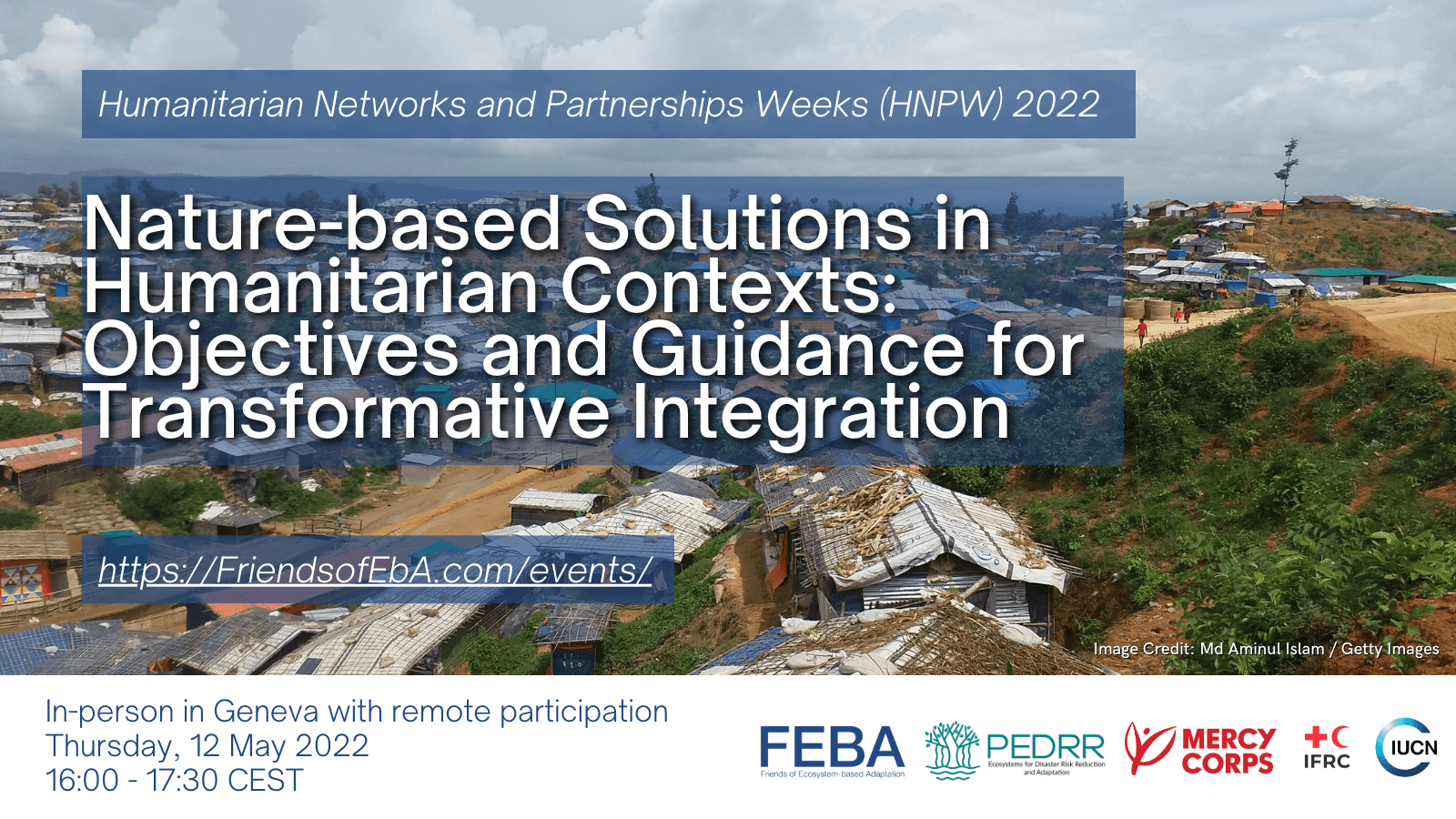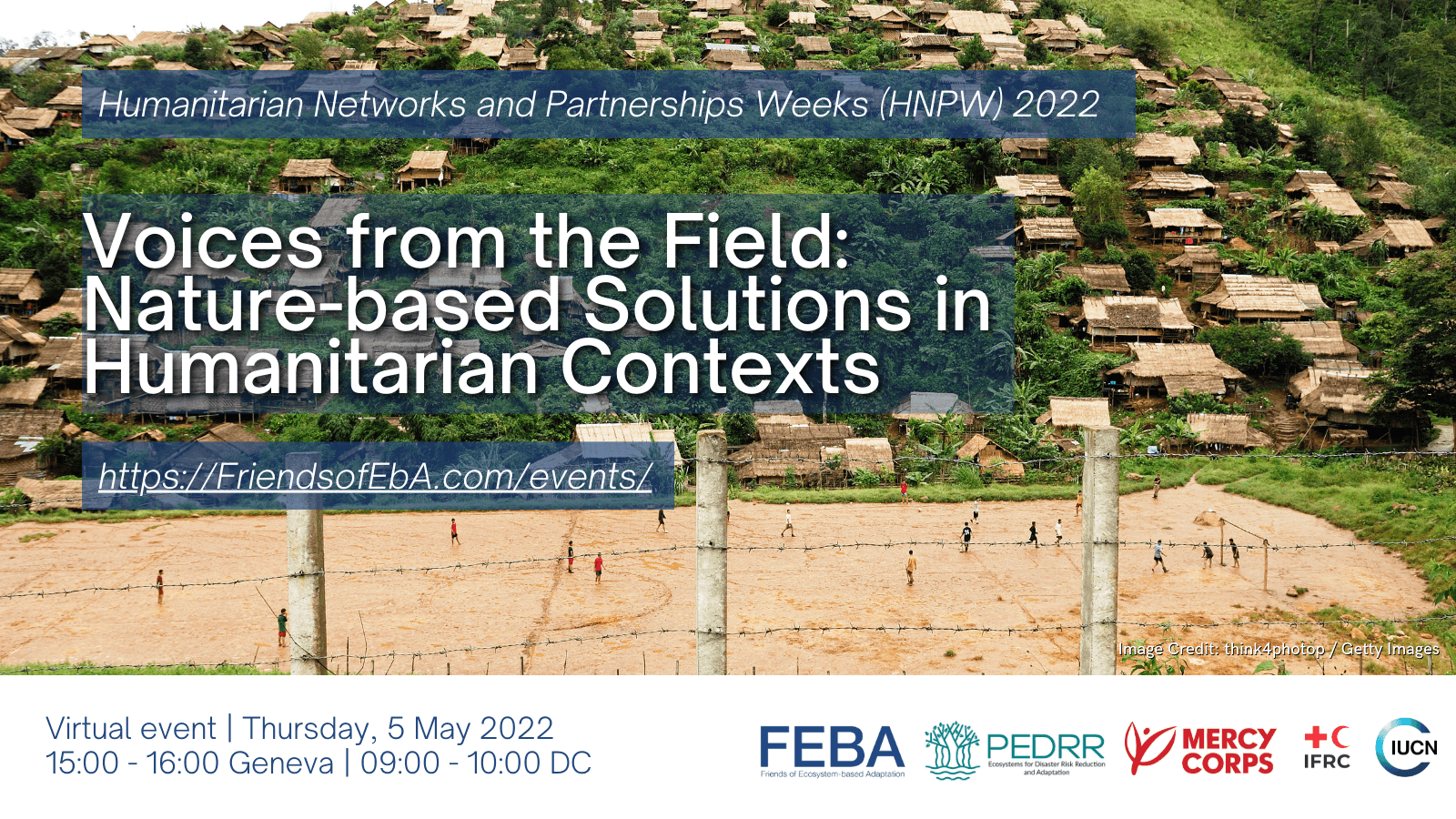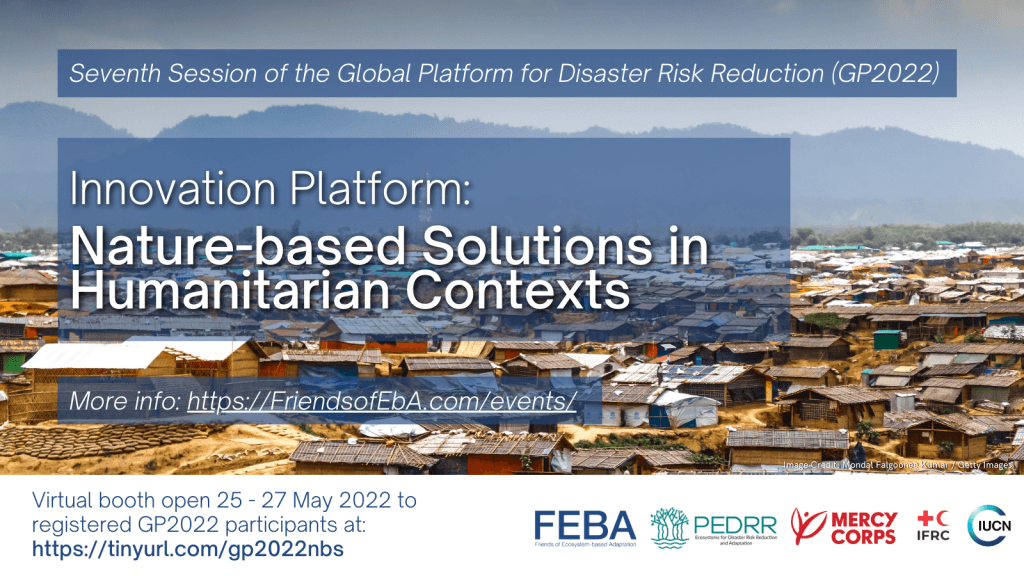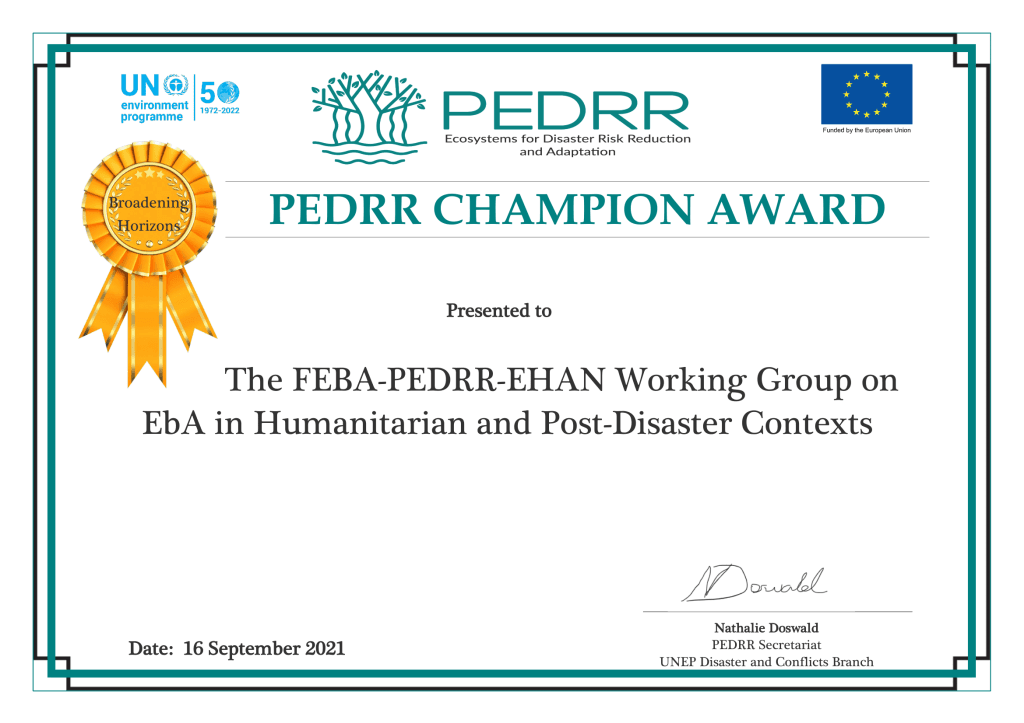NbS in Humanitarian Contexts
Chaired By

Ecosystem services, environmental health and safeguarding, and environmental hazards are often overlooked and degraded during humanitarian crises (e.g. protracted crises, conflict-affected fragile contexts, post-disaster, transitional recovery and development, etc.). Degradation of ecosystems and their services exacerbates peoples’ exposure to natural hazards and impacts from climate change, reducing access to safe, sufficient natural resources needed for livelihoods and undermining long-term development and increases. In addition, environmental and climactic factors play a critical role in the development and trajectory of complex crises. However, EbA can uniquely contribute to developing cost-effective, novel and durable solutions within crisis-hit areas, and contribute to building immediate and long-term resilience.
More shared, cross-network and inter-institutional research, learning and advocacy is needed to transform how humanitarian aid and development is done, to better consider nature based solutions and environmental safeguarding as a core component and strategy. The goal of this cross-network working group is to convene stakeholders across FEBA, the Environment and Humanitarian Action Network (EHAN) and the Partnership for Disaster Risk Reduction (PEDRR) networks to address these issues intentionally and collaboratively, elevating and advancing this work through a comprehensive Community of Practice.
Sphere Unpacked Guide on NbS
In April 2023 at the Humanitarian Networks & Partnerships Weeks (HNPW) 2023, the working group launched their flagship publication: “Nature-based Solutions for Climate Resilience in Humanitarian Contexts – A Sphere Unpacked Guide”.
Sphere Standards are the most widely recognized and utilized humanitarian standards across the globe. They are used to improve the quality and accountability of the humanitarian sector, used as reference tools by humanitarian agencies, advocacy groups, governments, and donors. The Sphere Handbook has been field-tested over twenty years and is regularly updated to ensure it remains fit for purpose in a changing world.
The Unpacked Guide focuses on NbS for resilience in humanitarian contexts, including for disaster risk reduction and climate change adaptation. Developed in partnership with Sphere, the guide was informed by the contributions of two Sphere focal point stakeholder roundtables and by the contributions of FEBA Working Group members and a broad range of experts.
Knowledge Products
Scaling Up Nature-based Solutions in Humanitarian Contexts Session – 2024 Humanitarian Networks and Partnerships Week in Geneva
Ecosystem-based Adaptation and Green Recovery: Building Back Better from COVID-19
In this new Friends of EbA (FEBA) multimedia story, entitled Ecosystem-based Adaptation and Green Recovery: Building back better from COVID-19, experiences are documented from communities around the world who are bearing the brunt of the impact of the pandemic, thus, showcasing the potential of EbA for building resilience to complex crises: including COVID-19. These lived, front-line experiences demonstrate the ability of EbA to both provide green work and economic recovery to communities in the short term, as well as reduce the vulnerabilities of ecosystems and communities for their health, livelihoods and well-being in the long term.
Nature-based Solutions for Disaster Risk Reduction and Climate Change Adaptation in Humanitarian Contexts
The working group hosted a session on Nature-based Solutions for Disaster Risk Reduction and Climate Change Adaptation in Humanitarian Contexts at Humanitarian Networks and Partnerships Weeks in May 2021.
Nature-based Solutions in Humanitarian Contexts: Key Messages
Key messages have been developed by the cross-network FEBA-PEDRR-EHAN working group on Nature-based Solutions in Humanitarian Contexts and released during UNFCCC COP26. These technical key messages emphasise the relevance of Nature-based Solutions (NbS) for the humanitarian sector, particularly in the context of strengthening climate and disaster resilience.
Events

Nature-based Solutions in Humanitarian Contexts: Objectives and Guidance for Transformative Integration
The FEBA-PEDRR-EHAN cross-network working group on NbS in Humanitarian Contexts hosted a side-event as part of 2022 Humanitarian Networks and Partnerships Week, centred on the working group’s efforts to transform humanitarian action through the integration of nature-based solutions and environmental considerations as a key component and strategy for achieving humanitarian objectives.

Voices from the Field: Nature-based Solutions in Humanitarian Contexts
The FEBA-PEDRR-EHAN cross-network working group on NbS in Humanitarian Contexts hosted a virtual side-event as part of Humanitarian Networks and Partnerships Week, focused on the implementation of nature-based solutions in humanitarian contexts will share experiences and lessons learned from the field.

GP2022 Innovation Platform: Nature-based Solutions in Humanitarian Contexts
The FEBA-PEDRR-EHAN Working Group on NbS in Humanitarian Contexts will host a virtual Innovation Platform booth during the Global Platform for Disaster Risk Reduction (GP2022). The booth will share the latest inter-institutional best practices, research, learning, advocacy and resources in the emerging area of work on nature-based solutions in humanitarian contexts.

Winning Poster at the PEDRR Cross-Regional Symposium
The cross-network FEBA-PEDRR-EHAN Working Group recently presented a poster to the Partnership for Environment and Disaster Risk Reduction (PEDRR) Cross-Regional Symposium, held from 15-16 September 2021. The poster set the scene for the urgency behind this working group, discussed previous products, and showcased the guidance and toolkit currently being produced.
If you are interested in joining this or another expert working group, or starting a working group on another topic, please contact us.




